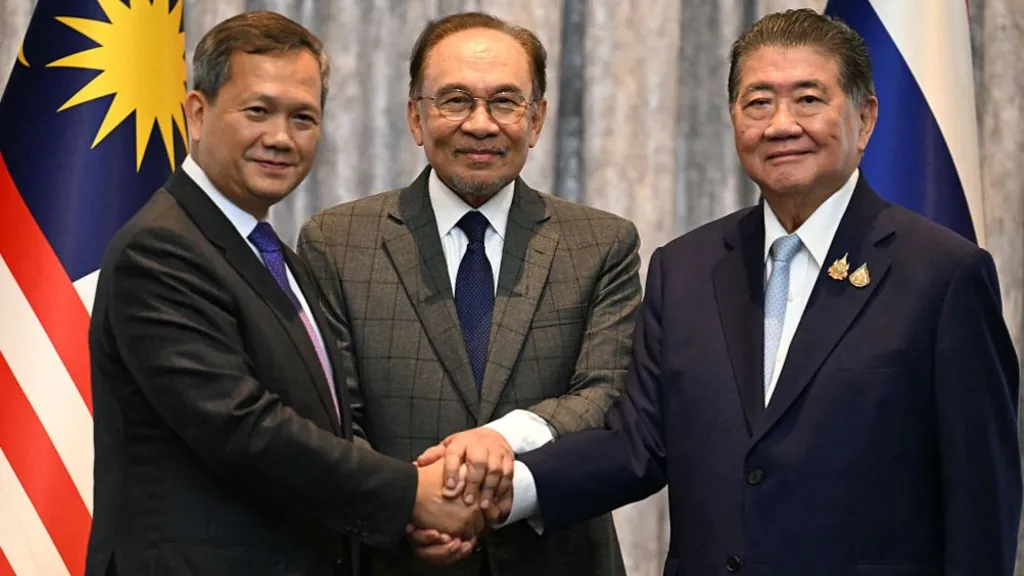
Thailand and Cambodia have agreed to an “immediate and unconditional ceasefire” following five days of border fighting that killed at least 33 people and displaced tens of thousands.
Malaysian Prime Minister Anwar Ibrahim announced the agreement alongside his Thai and Cambodian counterparts, declaring it “a vital first step to a de-escalation and a restoration of peace and security.” The ceasefire took effect at midnight.
Thailand initially rejected Malaysia’s mediation offer but agreed after US President Donald Trump threatened that tariff negotiations would halt until “fighting STOPS.”
The century-old border dispute escalated in May after a Cambodian soldier was killed in a clash. Thailand restricted cross-border movement for citizens and tourists, while Cambodia banned Thai imports, including fruits, power, and internet services. Local Cambodian media reported hundreds of thousands of workers returned from Thailand since May.
Tensions peaked last week when a Thai soldier lost his leg in a landmine explosion. Thailand closed border crossings, expelled Cambodia’s ambassador, and recalled its own diplomatic representative.
Fighting erupted Thursday with both sides exchanging gunfire, each blaming the other for initiating hostilities. Thailand’s army reported that many casualties on their side were civilians in villages struck by rockets. Cambodia confirmed 13 deaths, including eight civilians.
Artillery exchanges continued even during Monday’s peace talks in Kuala Lumpur.
Anwar stated that Malaysia and other ASEAN members would help monitor the ceasefire. Both countries must agree to withdraw their reinforced armies from the border and accept independent monitoring to prevent future clashes.
Cambodian Prime Minister Hun Manet called it “a very good meeting” that would immediately stop the fighting. Cambodia has sought a ceasefire since Friday as its forces faced pressure from Thailand’s superior military capabilities.
Acting Thai PM Phumtham Wechayachai briefly promised to honor the ceasefire agreement.
The front-line situation remains unclear as the area is accessible only to the two militaries. Thailand claims control of several Cambodian-held hills and has maintained sustained artillery attacks using its larger arsenal of heavy weapons, while also conducting air strikes on Cambodian positions.
The Thai government had been reluctant to engage in peace talks, stating that ceasefire discussions could only follow bilateral dialogue and “sincere intentions” from Cambodia, specifically ending rocket attacks that killed at least 14 Thai civilians.
While Malaysia brokered the talks, President Trump’s ultimatum likely forced the agreement. His Saturday threat to halt US tariff reduction negotiations unless fighting stopped proved decisive, as both countries depend heavily on US exports and face 36% tariffs without a deal. This would disadvantage their manufacturers compared to Vietnam and Indonesia, which have secured reduced tariffs of 20% or less.
Maintaining the ceasefire will be challenging given deep military mistrust and stirred nationalist sentiments. Thailand particularly objects to Thursday’s multiple rocket launcher attacks that caused most civilian casualties and escalated what had been small-scale soldier skirmishes.
Older evacuees near the Thai border, who experienced bombardments during Cambodia’s 1980s civil war, told the BBC this was the worst they had witnessed.
Thailand’s military reported evacuating nearly 140,000 civilians to shelters across seven provinces by Sunday. In Cambodia, where press restrictions are severe, the pro-state Khmer Times quoted a defense ministry spokesperson saying approximately 135,000 border residents were relocated on Sunday.
A 75-year-old Cambodian woman evacuated to a shelter told the BBC Monday that she still felt unsafe hearing Thai drones overhead. She expressed hope to “see the war stop this evening.”


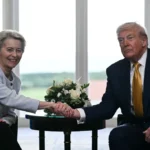





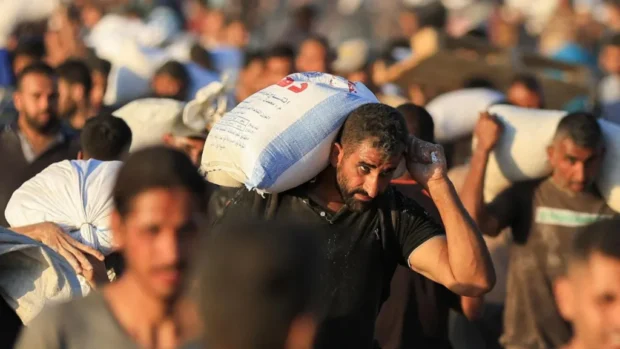
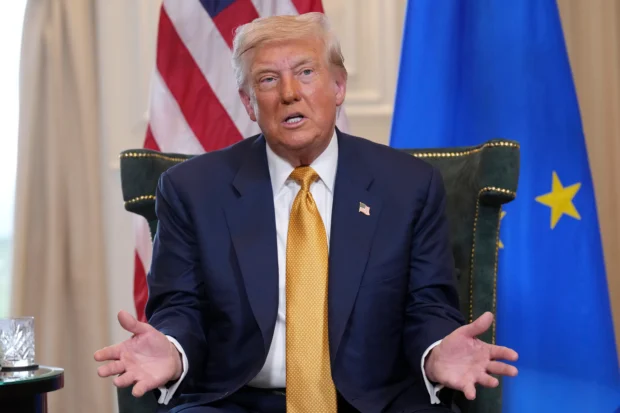
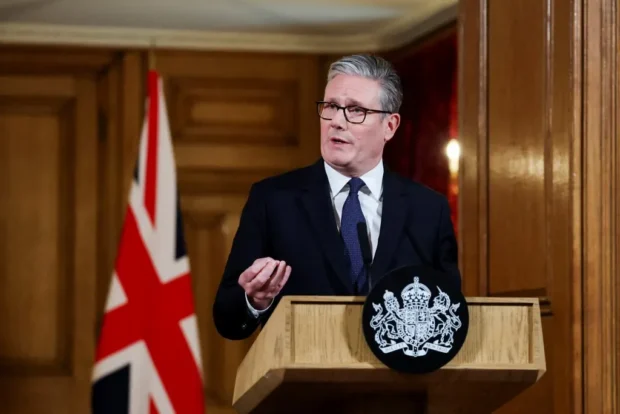
Be the first to leave a comment